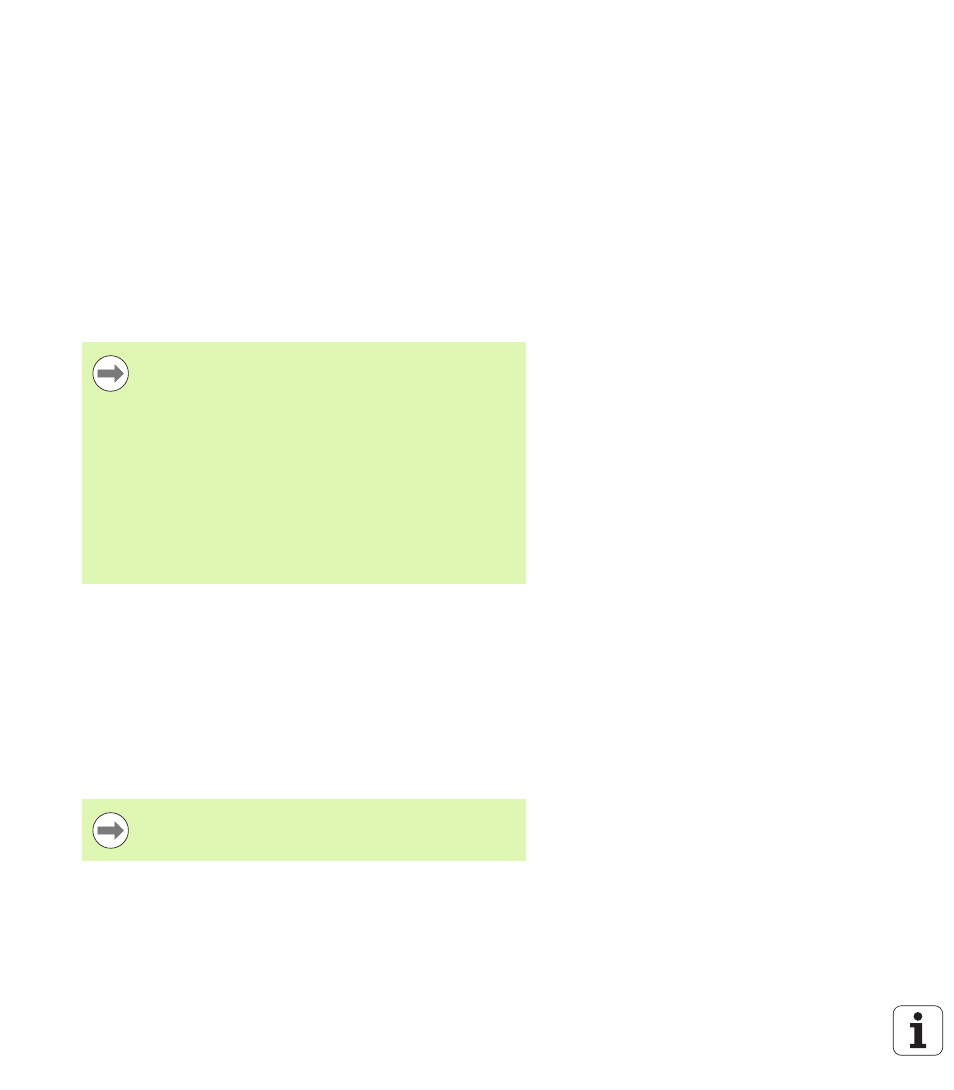Text file – HEIDENHAIN ND 287 User Manual User Manual
Page 116

116
II Installation, specifications
II – 7 Input and output of par
a
met
e
r list and er
ro
r
compensation table
II – 7 Input and output of parameter
list and error compensation
table
Text file
You can receive the lists output by the ND via the serial data interface
as text files in ASCII format and save them on your PC.
To export or import data between the ND 287 and a PC, the PC must
use terminal communications software, such as HyperTerminal,
which is included with Windows ®, or TNCrem. TNCremo is
idenhain.de on the downloads page under
Documentation and Information
.
The lists received are first checked for the type of position display unit
(line 2 of output list). The receiving ND accepts only lists prepared by
the same type of position display unit. For example, if the ND 287
receives a parameter list from the ND 280, it generates the message
"ERROR DURING RECEPTION Incorrect data file." in the window to
the right. Acknowledge the message with the C key.
Furthermore, the ND checks the list for completeness. Lists that
contain, for example, too many or too few parameters are ignored. If
an error occurs, the ND also displays an error message:
ERROR DURING RECEPTION Incorrect data file.
Acknowledge the
error message with the C key.
Example
: P01 LINEAR = 3
The value 3 is not allowed. The parameter P01 is set to the default
setting: P01 LINEAR = 0
Each list must be saved as a separate text file.
You can then use the terminal program to transmit the
text files back to the ND.
If you want, you can edit the text files with a text editor
and change the parameter values, for example.
However, this requires knowledge of the different
output formats of the lists
(see following pages).
When receiving lists, the ND expects the same list
structure as used for the output.
When receiving lists, the ND firsts waits for the starting
character
< # >.
The receiving mode ends as soon as the ND has
received the final character < # >.
If the ND receives invalid parameter values, it sets the
respective operating parameters to the default settings.
